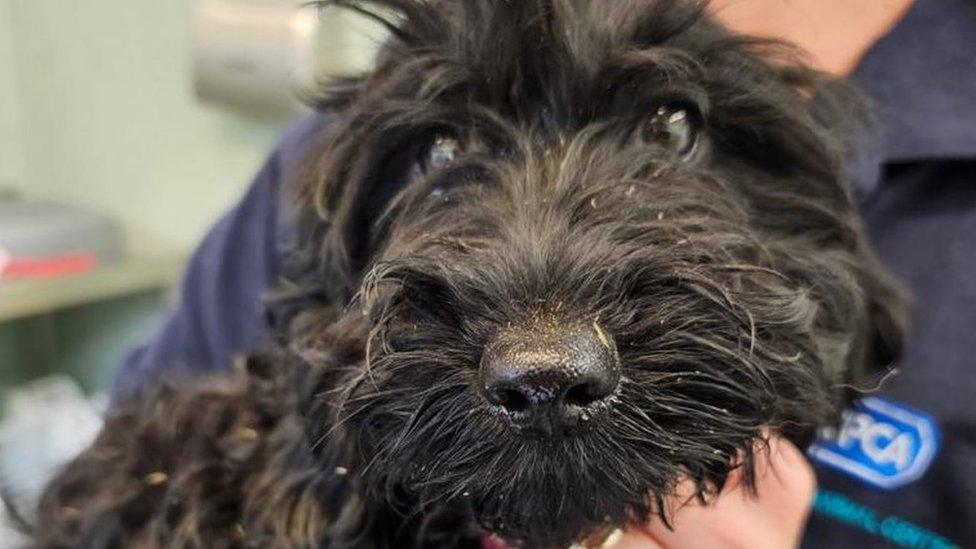The RSPCA at 200: Life as an inspector
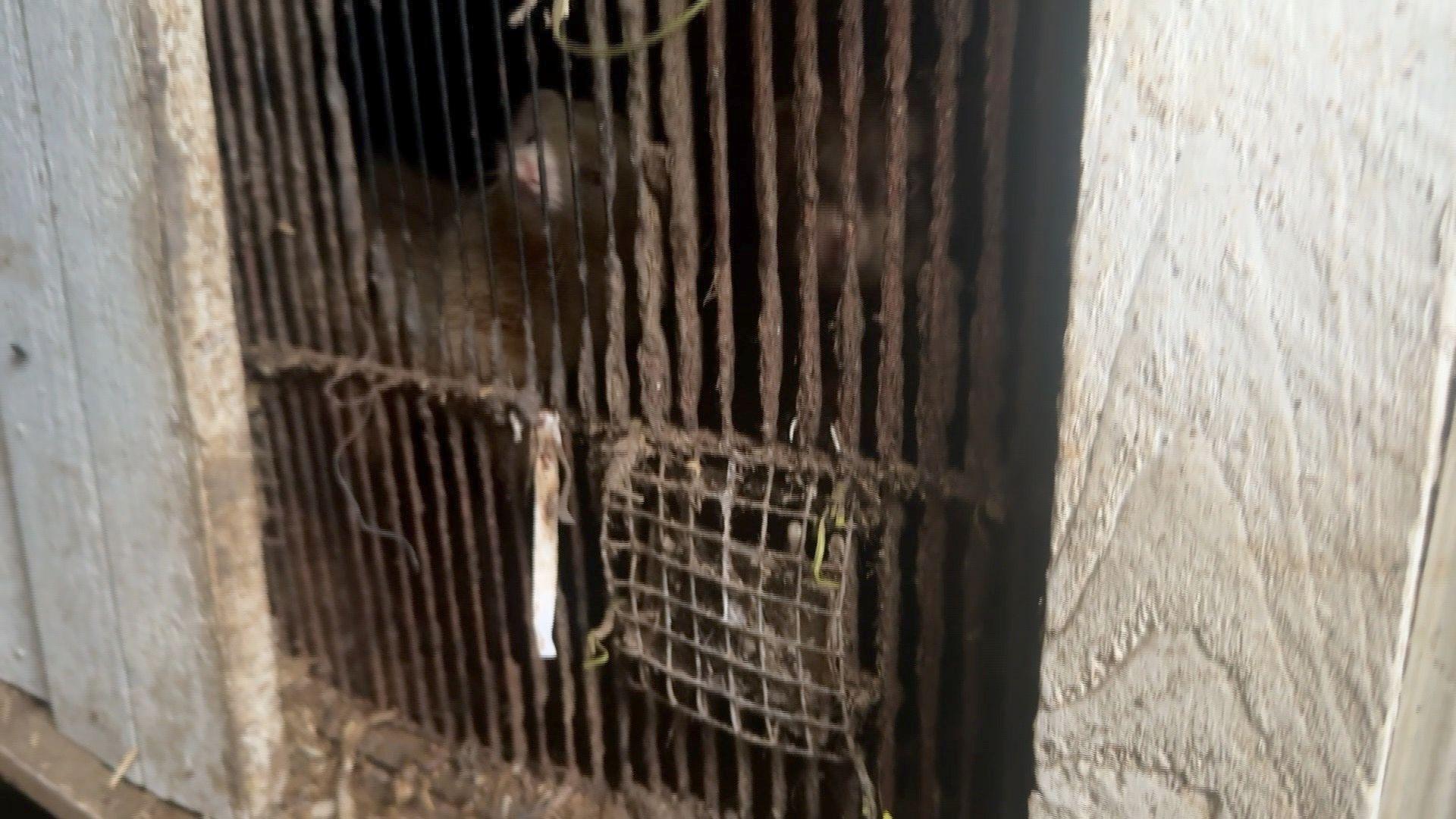
Ferrets were found caged in filthy conditions in a back garden in Ilkeston
- Published
In 1824, the world’s first animal welfare organisation - now known as the RSPCA - was founded. Two centuries on, what is it like to work for the charity?
The shed is overgrown, stacked with cages. The smell of rotten meat and faeces is overwhelming.
This isn't an abattoir - it's a semi-detached house in Ilkeston, Derbyshire.
RSPCA inspector Michelle Hare stands listening to an elderly man, while one of her colleagues picks through the grim contents of the cages.
“My wife, she’s not a cruel person. She loves her animals. This will kill her.”
He is frail, and no taller than 5ft 5in – but he’s angry.
“Whoever shopped us. You don’t want me to find out who it is.”
I’ve spent three days with Michelle, trying to get a sense of what she faces day to day.
I expected the job to be all about animals, but it’s much more complicated.
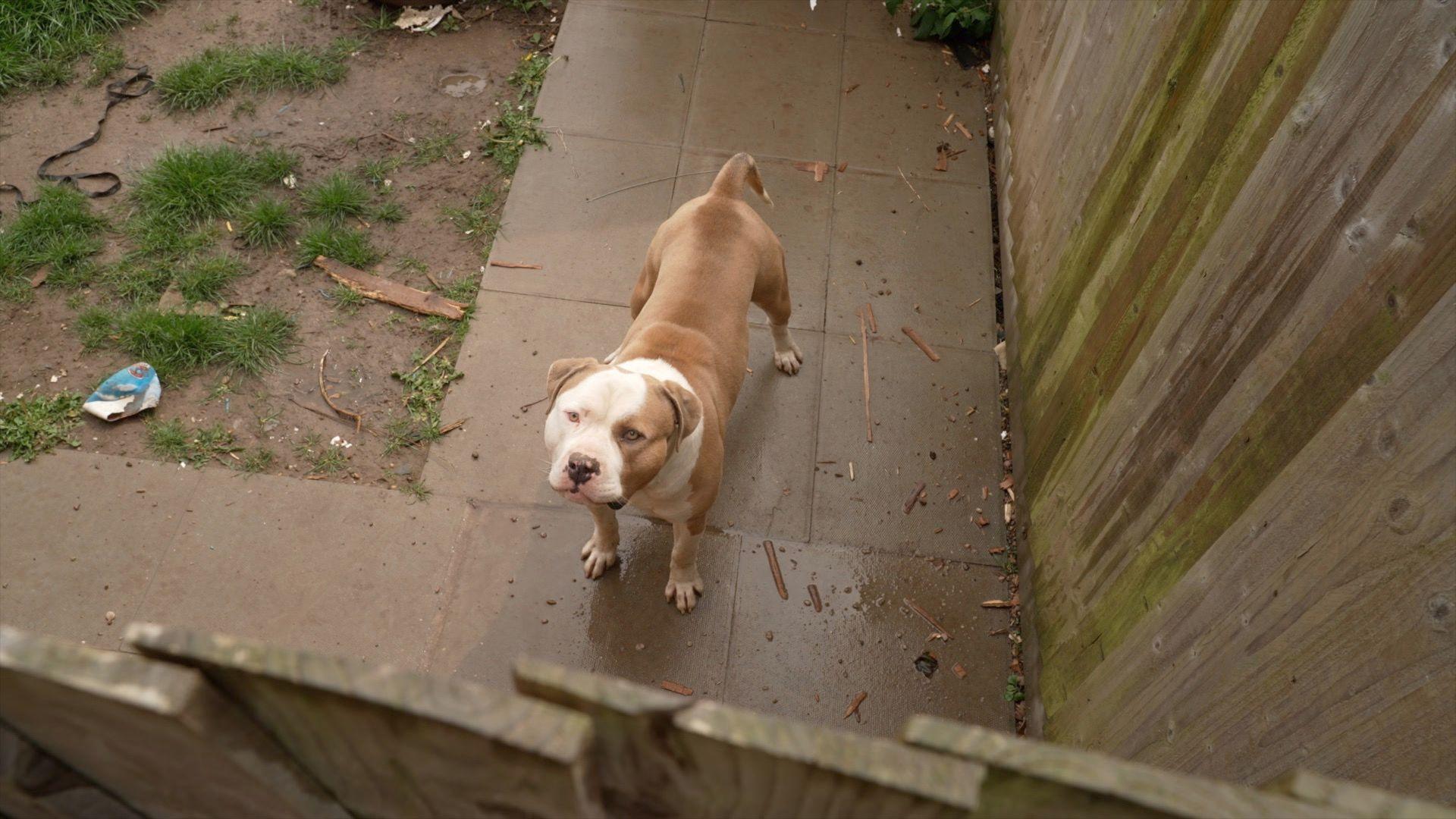
This XL bully was howling through the night after being abandoned
Britain’s best-known animal charity had uniformed officers on the streets before the Metropolitan Police.
In the years that followed it, founding laws were passed banning bull and bear baiting, as well as cruelty to dogs and other domestic animals, and better standards were brought in at slaughterhouses.
In 1840 Queen Victoria gave permission for the Society for Prevention of Cruelty to Animals to add "royal" to its name - and it became the RSPCA.
Back then, inspectors focused on live animal markets and working animals. But the basic aim of encouraging better welfare is the same now as it was in the 1800s.
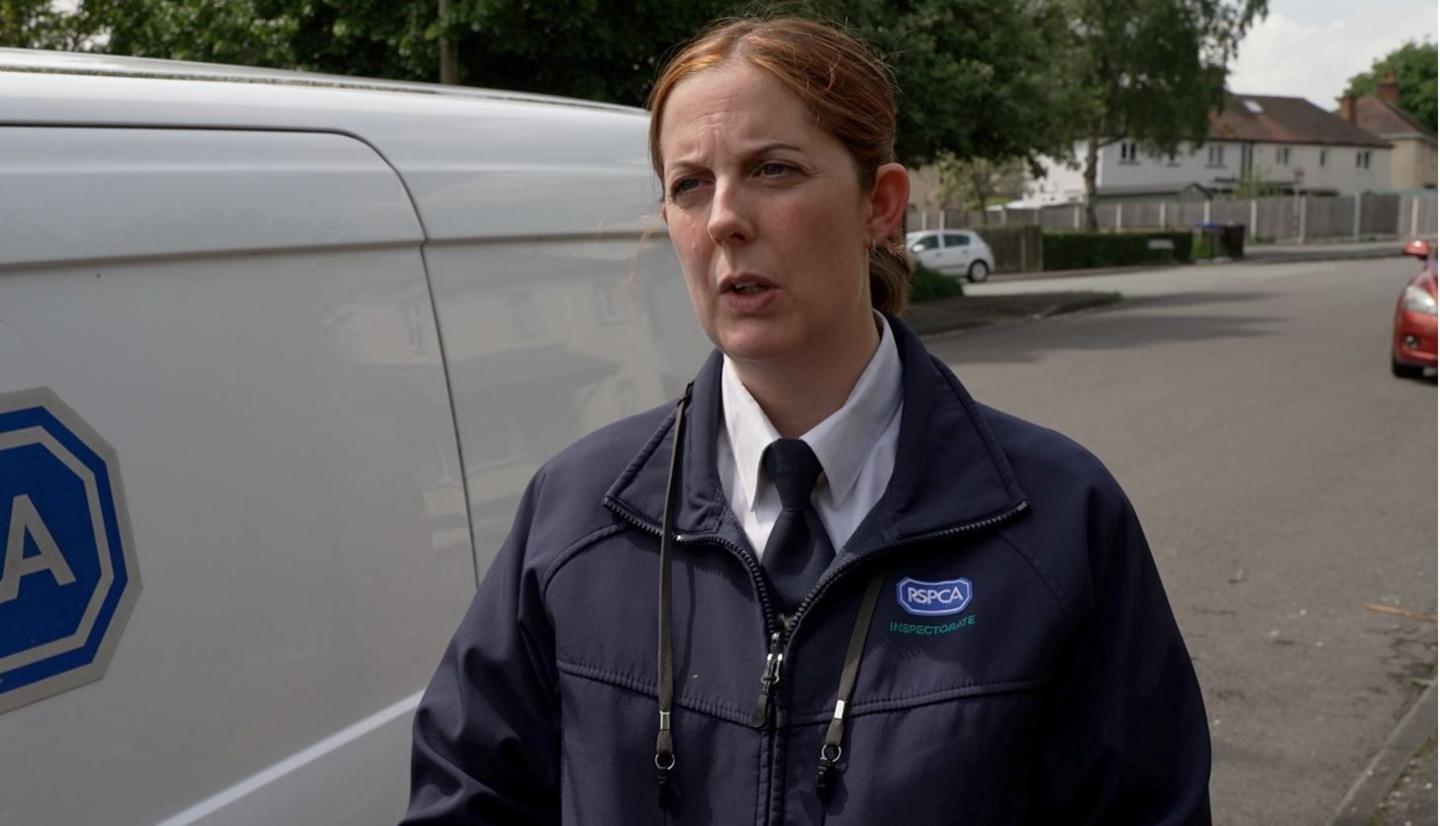
Michelle has been an RSPCA inspector for 17 years
On my first day with the RSPCA, I meet Michelle at an animal rescue centre in Leicester.
Our initial call-out is to investigate reports of an abandoned dog in the city.
When we arrive, Michelle squeezes down a side alley and climbs onto a box to peer over a garden fence.
“Oh, hello baby.”
In a shed at the end of the garden sits an XL bully. It growls at her.
“I know, you don’t want to be my friend.”
The garden is overgrown, with a discarded car tyre and a broken swing. The dog clearly doesn't appreciate visitors.
Michelle puts a small piece of tape across the house's front door, a trick of the trade which should later help her establish whether anyone is using the house.
Inspectors can only enter a property to take an animal if they have evidence it's abandoned.
'Responsible ownership'
As we're leaving, a neighbour comes out to speak to us.
They tell us the house’s occupant is in prison for a violent offence, and the whole street is worried about the dog, which has been howling through the night. Another neighbour has been throwing food over the fence.
Later, after the dog warden and police have been alerted, it becomes clear the XL bully is unregistered.
Because the breed was banned earlier this year - and the law doesn't allow ownership to be transferred - the police remove and euthanise the abandoned animal.
The RSPCA admits this is a difficult issue for them. The charity campaigned against the legislation and says there is no "robust scientific evidence" which shows a ban on any breed effectively protects the public.
It has to work within the current law, but says in the long term improved legislation is needed to encourage responsible ownership alongside robust enforcement.
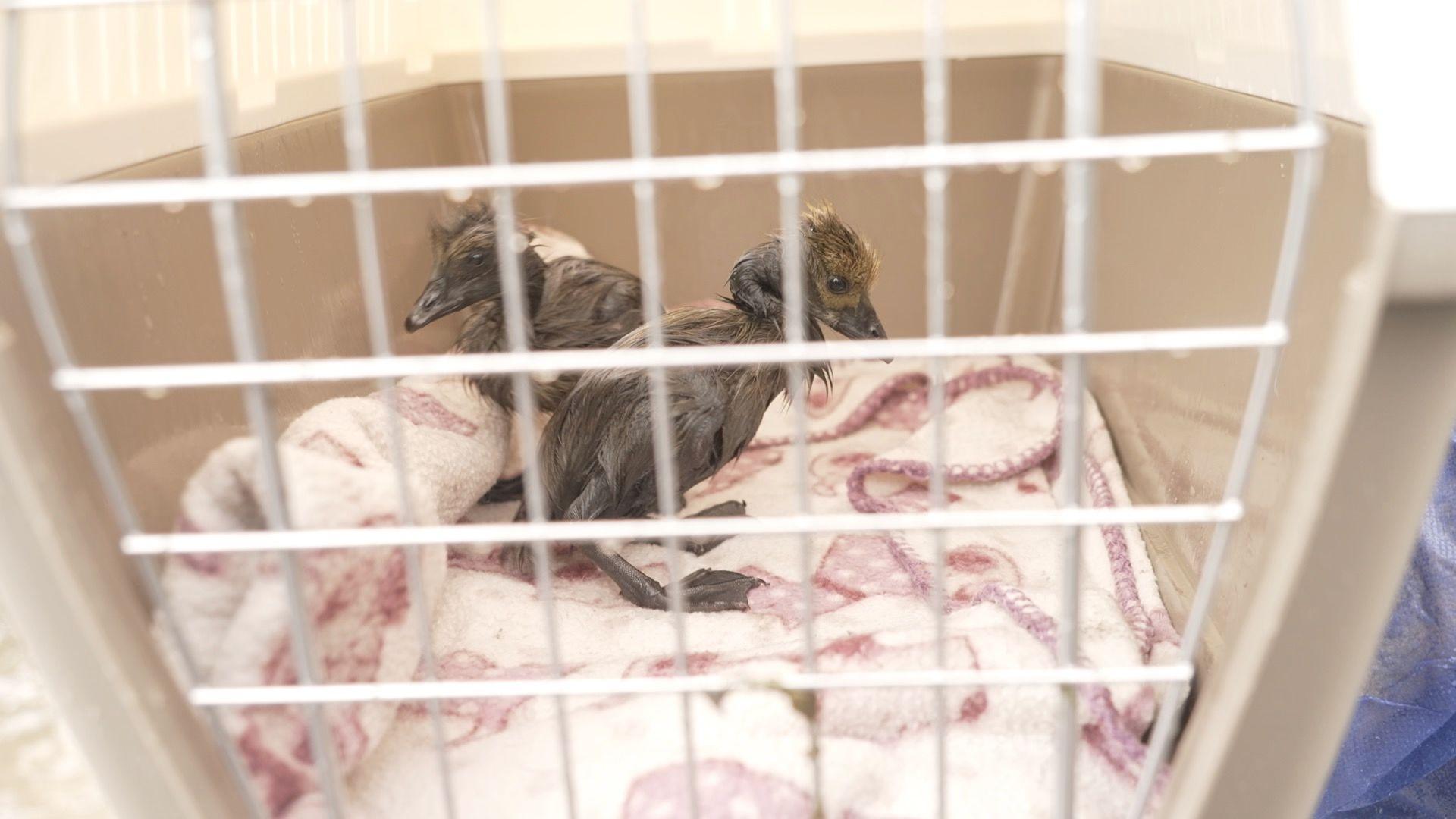
These oil-covered goslings would have struggled to survive
The next call-out takes us to a lake on the Leicestershire-Warwickshire border.
When we arrive, water company Severn Trent is already on the scene. One thoughtless act - oil dumped into the water system – has left the lake's surface with a thick, silvery coating.
Oil is life-threatening to birds because it coats their feathers, stripping them of their waterproofing. This prevents them from flying and also affects their buoyancy. Often, they have to stay on land or risk drowning.
The RSPCA has designated the spill a major incident – and there is a large group of inspectors and Animal Rescue Officers (AROs) on site.
Michelle and fellow inspector Boris jump onto a boat and make their way to a small island in the middle of the lake.
After squeezing through densely-growing trees and bushes, they hear the sound of chirping and find a group of distressed goslings.
The chicks should be a fluffy yellow-grey colour, but instead are coated with a black tar-like oil. They also have red blotches on their skin.
“We’ve got some burning where the oil has been on,” says Cara Gibbon – an ARO who has also been searching the island.
“We need to get you guys in for a wash don’t we?”
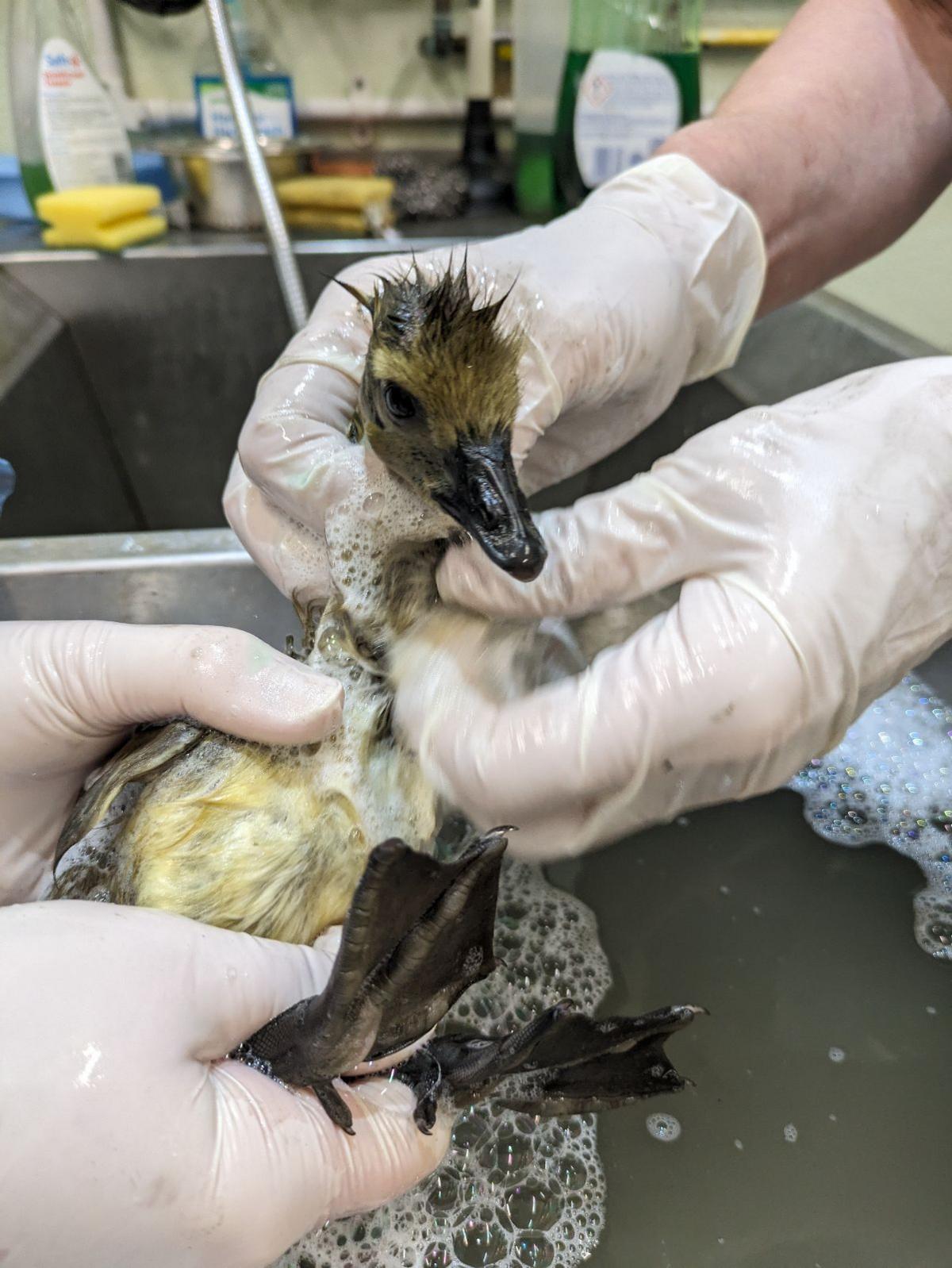
The rescued chicks were cleaned so they could be returned to the wild
The goslings’ mother is slowly swimming away, sitting low in the water as her natural waterproofing is sapped away by the oil.
The inspectors chase her down in their boat. She eventually tires of swimming and makes for land, where she stops, exhausted, unable to escape by flying.
While the RSPCA was able to catch some of the birds living at the lake, there were many more animals they weren’t able to rescue.
Over the following days, scores of fish float to the surface of the lake, killed by the toxic oil.
Severn Trent says it is still investigating the cause of the spill.
Two centuries of the RSPCA
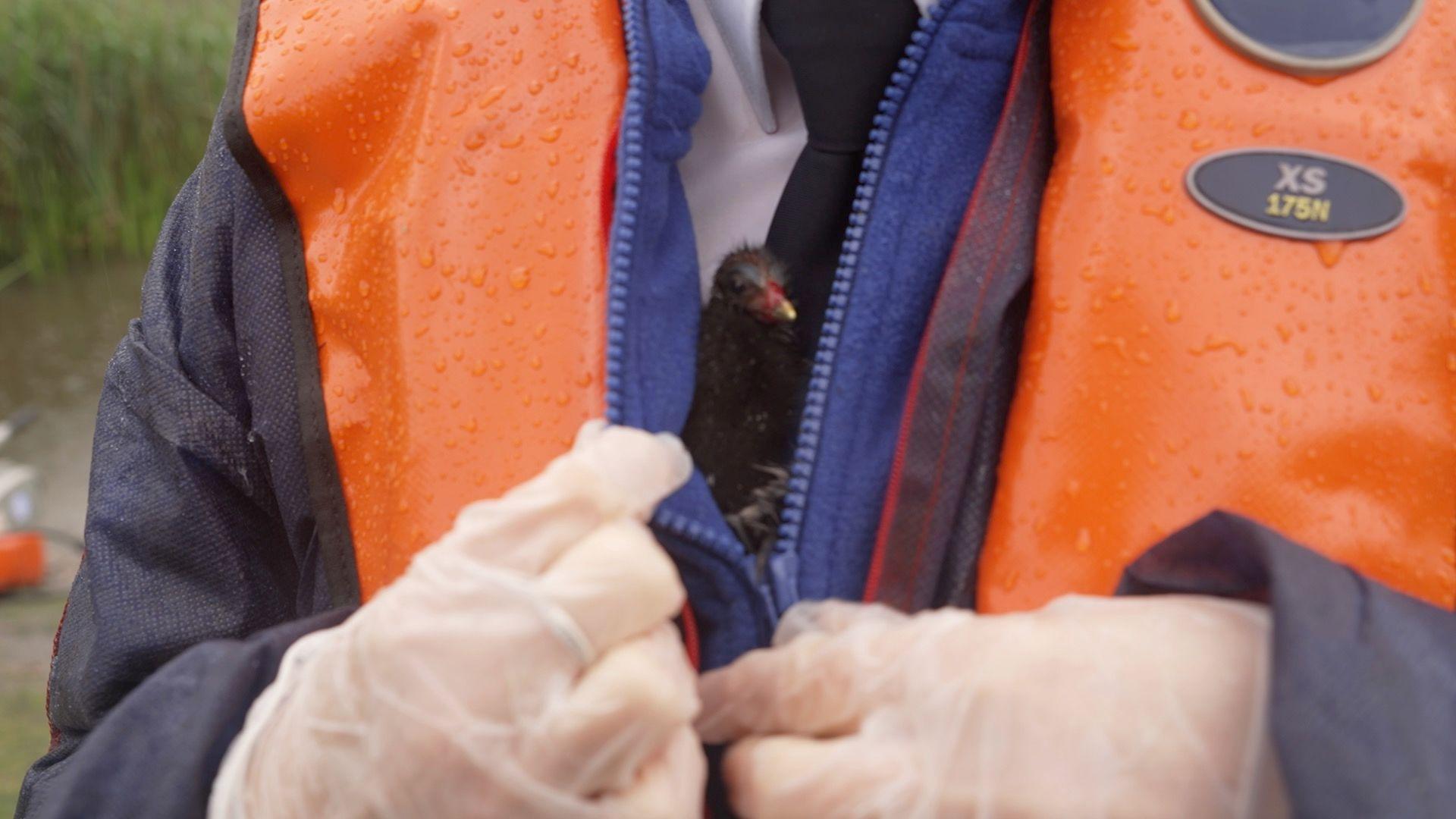
1824: The Society for the Prevention of Cruelty to Animals is founded
1835: Bear and bull baiting are abolished and new welfare laws brought in
1840: Queen Victoria gives permission to add "royal" to the SPCA's title
1870: RSPCA staff stop the last-ever bullfight in England
1914: The Fund for Sick and Wounded Horses is set up during World War I
1940: In World War II, 37 inspectors earn silver medals for rescuing animals
1952: Ninette Gold and Pat Jones become the first women patrol officers
2005: The Hunting Act, campaigned for by the RSPCA, outlaws the hunting of most wild animals with dogs
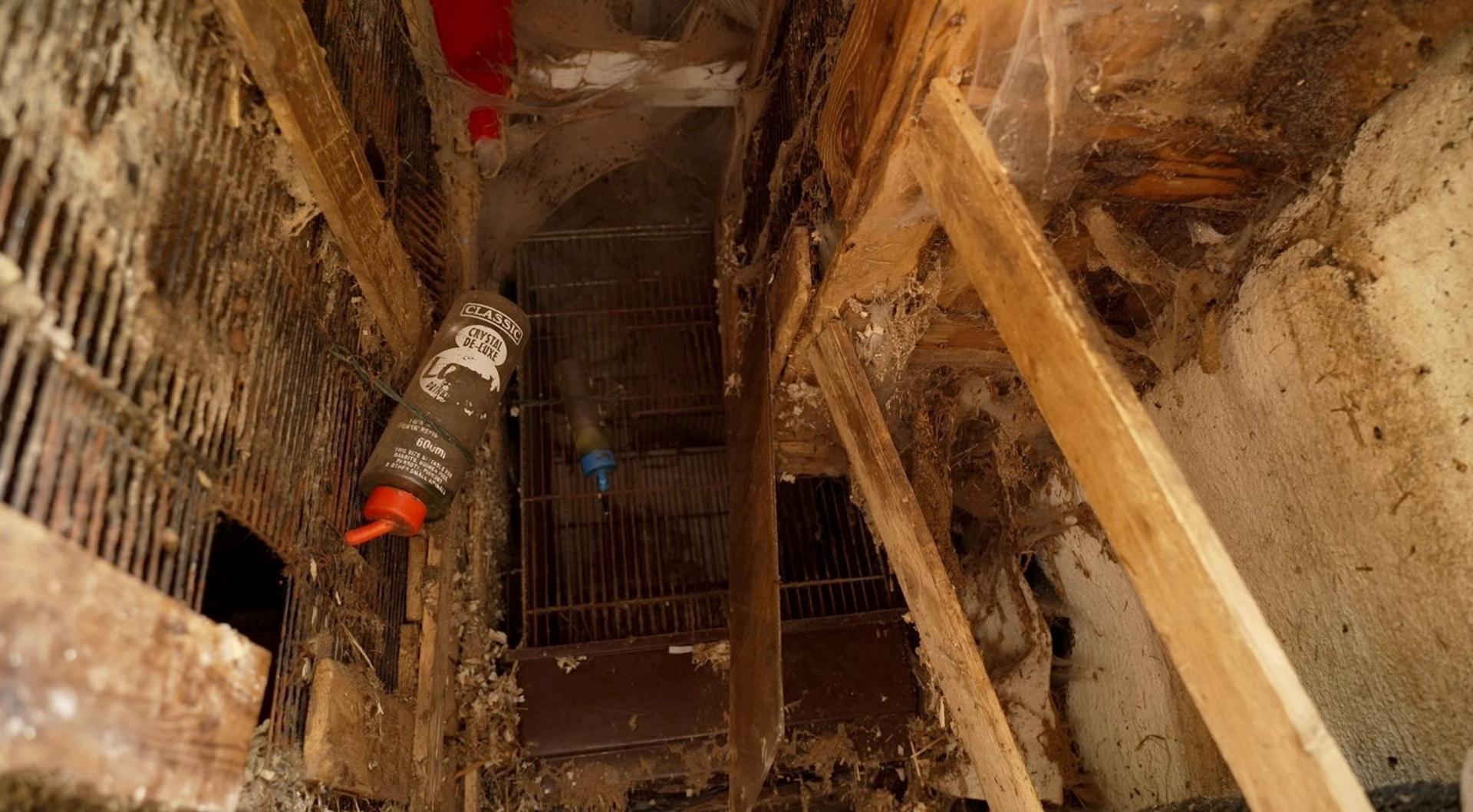
At the house in Ilkeston, dozens of animals were being kept in filthy cages
In the three days I spent with Michelle, we chased wild geese, responded to complaints of animal cruelty, checked on 25 dogs being kept on a building site, and much more.
The average RSPCA inspector travels 80 miles a day. In total, we visited five towns in four counties across the Midlands.
Inspectors are responsible for investigating cruelty, neglect and organised animal crime - Michelle tells me she is busier than ever.
Our final call-out, in Ilkeston, is to a report of a handful of rabbits and guinea pigs being kept in “grubby” conditions.
When we arrive, it becomes obvious the problem is on a much larger scale.
In the garden of the semi-detached house are at least eight small sheds. The RSPCA inspectors look inside and what they find is distressing.
There are about 160 animals - ferrets, rabbits, guinea pigs, canaries and snakes - being kept in squalor.
Close to tears
"These animals are living in darkness, pitch black, no ventilation, no light, no space, just wading around in their own excrement," says Michelle.
"They’ve got mites, they might have ring worm, we’ve got injuries from fighting because of overcrowding."
They have also been reproducing, she adds, and some of the young are "very thin".
The owner is an elderly woman who has kept large numbers of pets for over five decades.
She appears close to tears as the inspectors go through the cages, questioning her about the welfare of the animals.
Despite the evidently awful conditions, the woman's husband remains fiercely protective of her.
Michelle says it all indicates an addiction to animal collecting, even hoarding.
The majority of the pets are subsequently confiscated, going to animal centres across the Midlands and north of England, leaving the couple with just a handful.
The RSPCA says court action is an absolute last resort. Because the owners co-operated with the inspectors and were considered “vulnerable”, they narrowly avoided a prosecution.
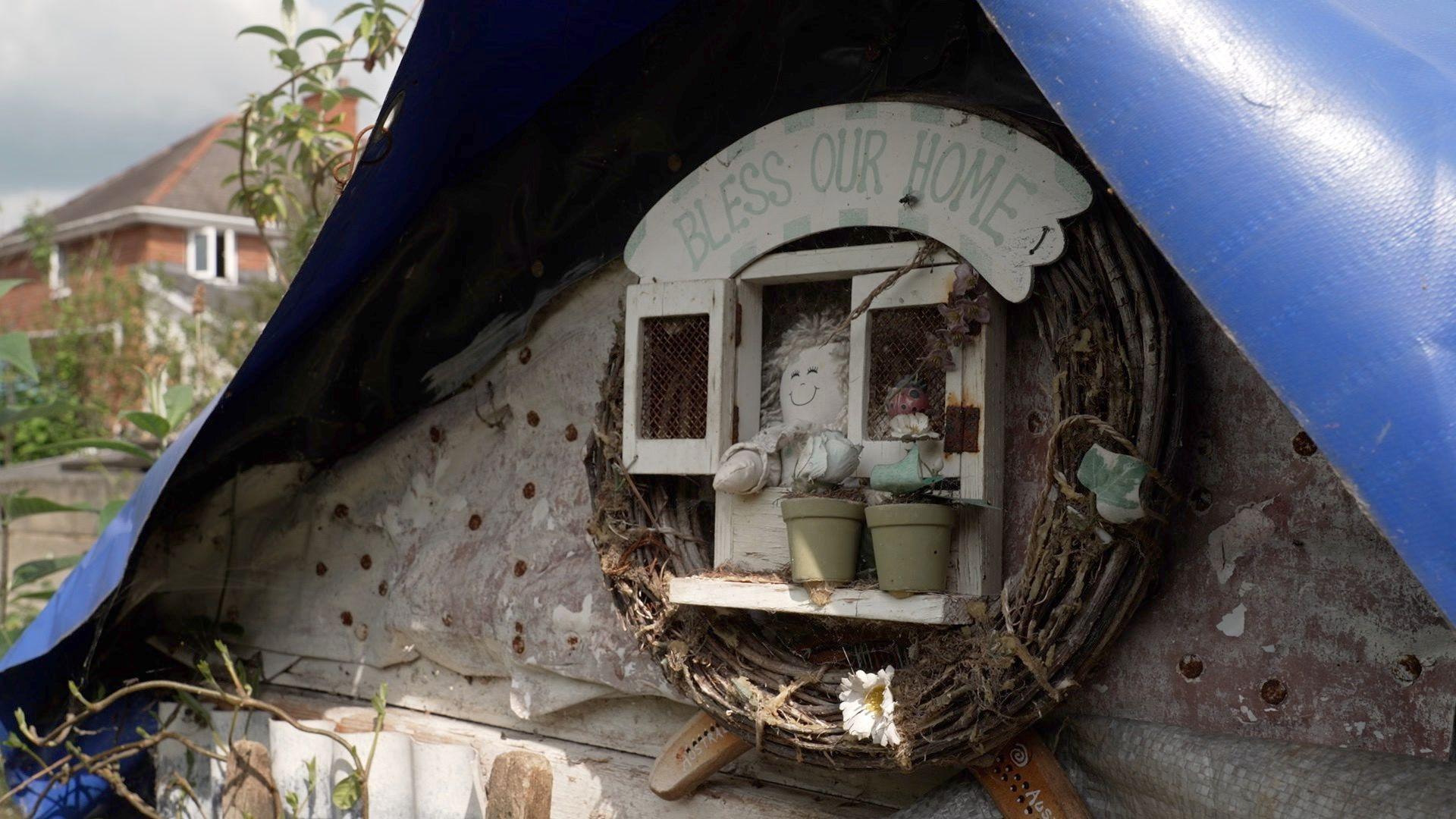
Many animal owners encountered by the RSPCA are struggling in some way, says the charity
Michelle tells me: “You can’t do this job if you don’t know how to work with people.”
“I would say eight in 10 people we come across have some sort of vulnerability, be it a mental health condition, a learning disability, lack of language skills or something else.”
She has been an inspector for 17 years and says a large part of her job is working with people who are struggling the most.
“A good inspector isn’t just able to care for animals - at the core of the job, they have to understand people.”
Follow BBC Nottingham on Facebook, external, on X, external, or on Instagram, external. Send your story ideas to eastmidlandsinvestigationsteam@bbc.co.uk, externalor via WhatsApp, external on 0808 100 2210.
Related topics
- Published31 December 2023

- Published29 December 2023
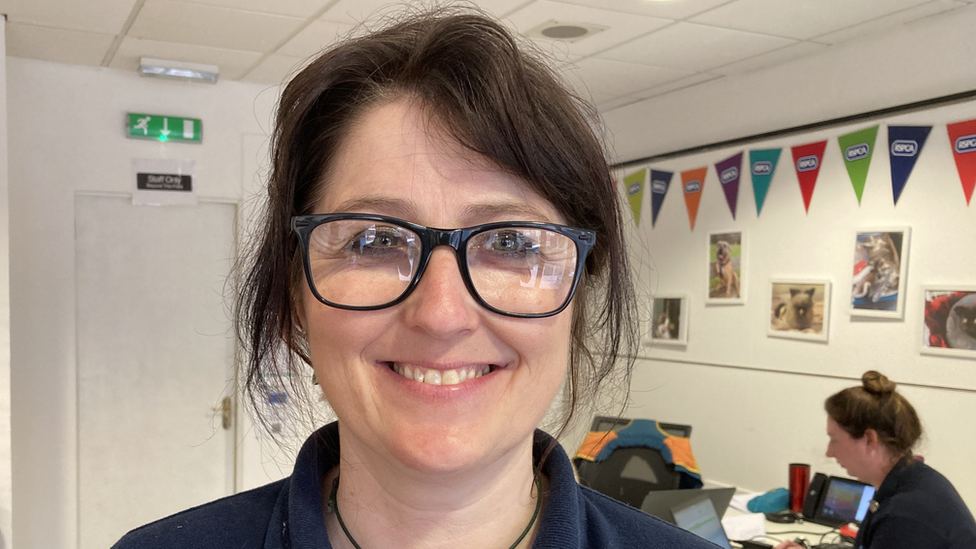
- Published22 December 2023
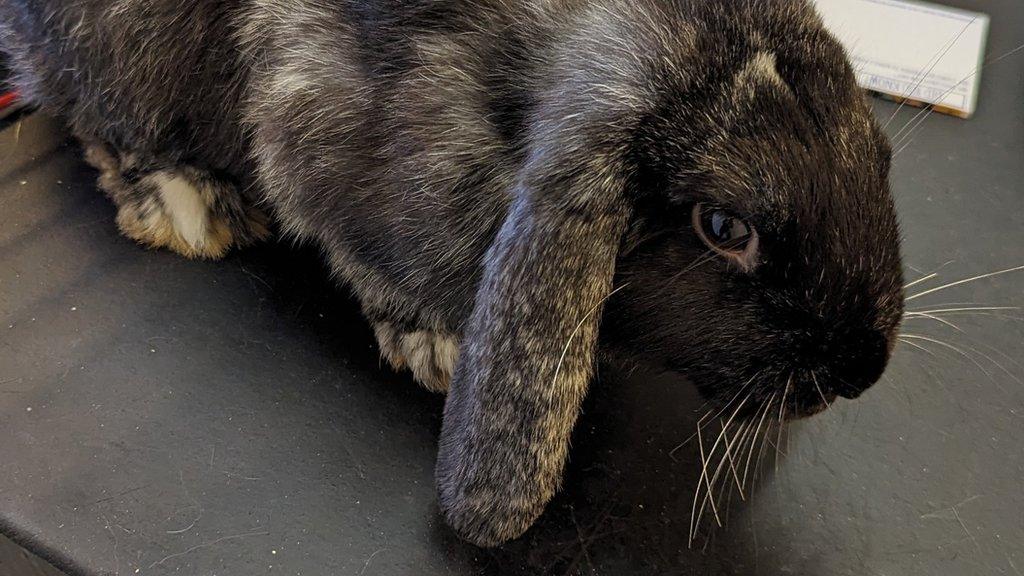
- Published22 November 2023
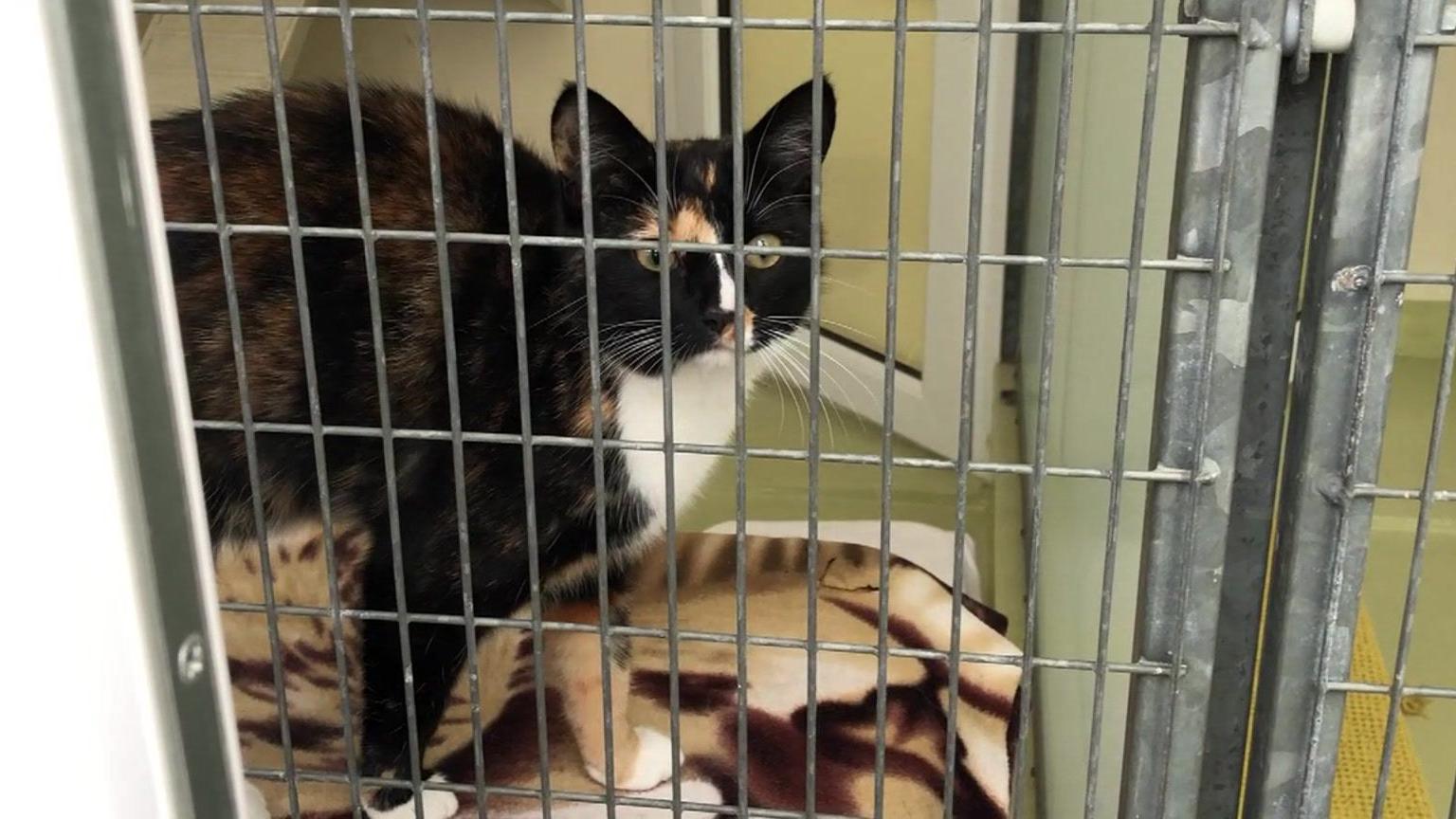
- Published4 October 2023
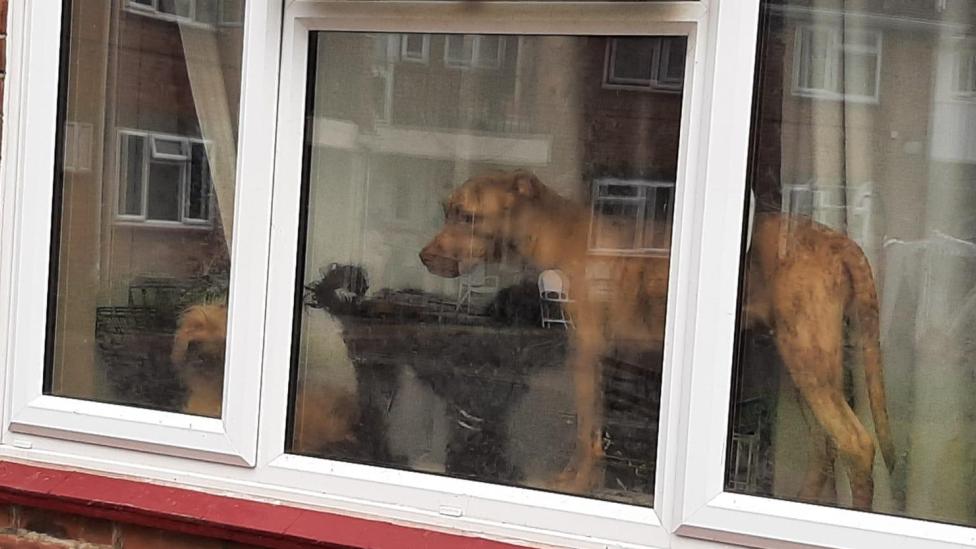
- Published15 September 2023
